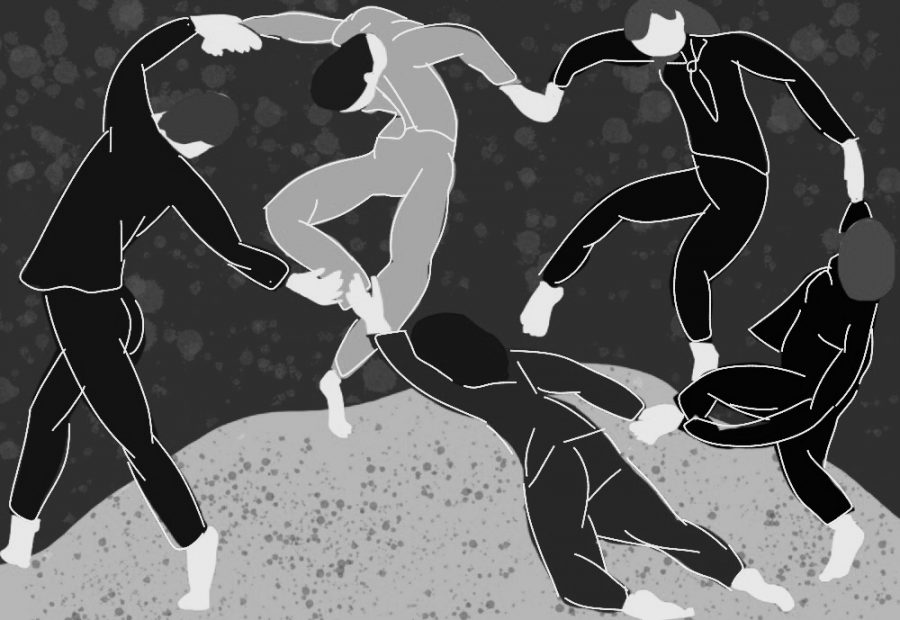What you can gain from “deep play”
February 13, 2020
You are eight years old. It is recess, and you’re giggling wildly as the distance between you and a friend gets ever smaller in a game of tag. The mental state at which this example gets at, termed “deep play” by Diane Ackerman, is a state ever waning from our experience as adults. When we find deep play, we find intense bliss in connecting with our present situation. This, along with much else, is lost from the lives of us “civilized” folk, and the fallout of such an absence may help us to understand the ways in which our culture fails at prescribing for us a life best lived.
As I see it, our understanding of play is defined by our conception of the opposite: work. When it comes to the things we do with our time, we either work or play. Today that means we either suffer through our nine-to-five or go out and party. Or, if our work has made us too tired, we watch TV. I take these activities, partying and watching TV, as archetypes of what adults now think of as play — activities of self-anesthetization. We have confused such activities for states of play because they are dopamine banks, and our brains find them terrifyingly similar to the healthy states of deep play that Ackerman explores.
Ackerman claims that states of deep play are much more than recreation. The book’s description says, “[deep play] makes thrill-seeking understandable, creativity possible, and religion inevitable. Deep play awakens the most creative, sentient, and joyful aspects of our inner selves.” We must not conceptualize play as merely having fun. To do so is a severe undervaluation.
Deep play can occur in a multitude of ways, all of which the person is fully immersed in their activity. I imagine an artist existing in a cosmos of her own making or a surfer working with the form of the wave, moving with absolute grace. Notice that this state fundamentally requires complete presence. If the artist’s phone rings, she loses her vision. If the surfer remembers he forgot to turn the oven off, he falls.
The overlap between inauthentic and authentic play is that in both a state of vegetative screen-staring and a state of perfect athletic finesse, the chatter in our minds shuts up. Our personal critic, our internal to-do list, our private notebook of worries — they all disappear.
There are always multiple methods to remedy a problem, some better than others. The difference is that the inauthentic states of play — TV and alcohol — remove us from our present actions. Where the artist vanishes into her work and the surfer vanishes into the very act of surfing, the TV watcher vanishes into the television. The partier and the TV watcher lose a sense of themselves and their actions, whereas the artist and the surfer lose themselves as a result of being completely tuned into their actions.
Thus, we anesthetize ourselves with false states of play, and we develop a greater and greater tolerance to this anesthetization. Deep play may be the human route to authentic existence in the present. Hippocrates famously said, “Let thy food be thy medicine, and thy medicine be thy food.” I’ll present a modification to fit my message: Let thy work be thy play, and thy play be thy work.






